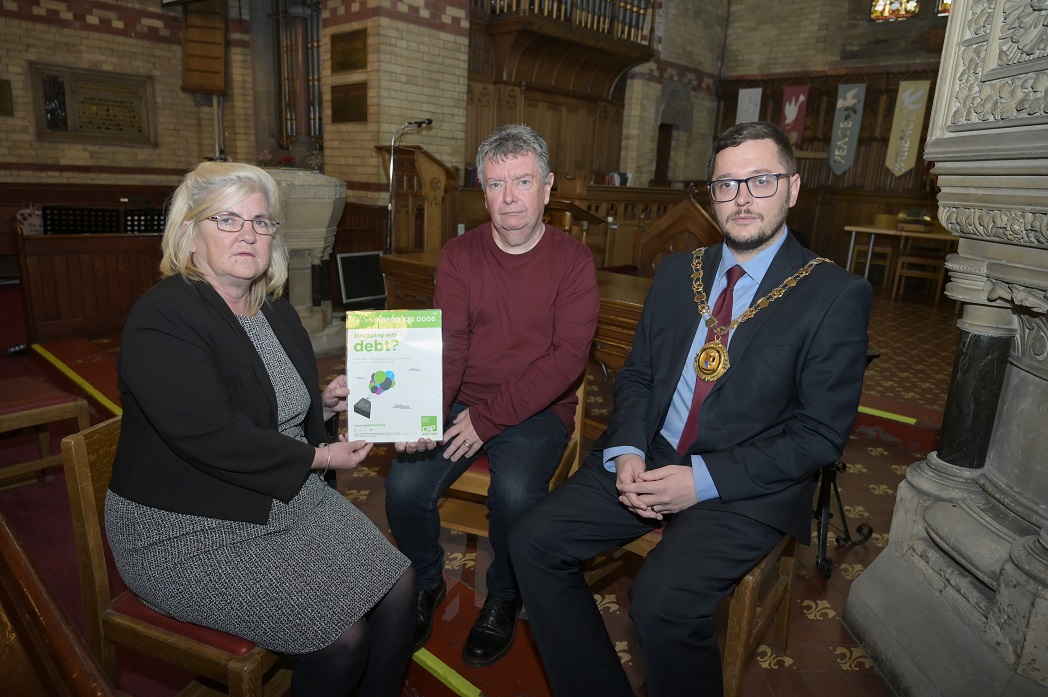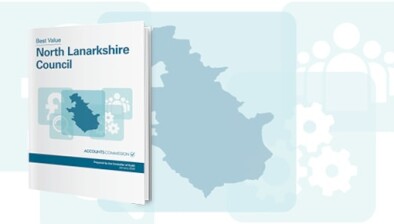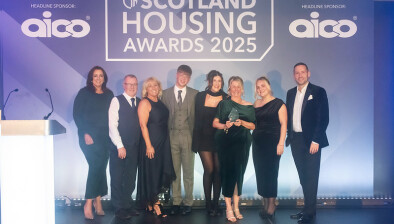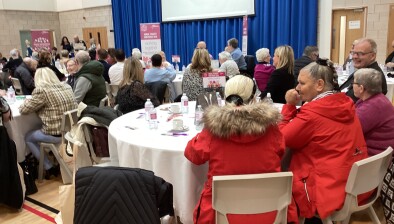North Lanarkshire Council launches three-year strategy to tackle child poverty

A new strategy sets out a four-pronged, collaborative approach to tackling the long-term impact of poverty and child poverty across communities in North Lanarkshire.
The ‘Towards a Fairer North Lanarkshire Tackling Poverty Strategy (2023-2026)’ is a clear collective commitment from the council and its partners to work together with communities and people with lived experience of poverty to help reduce the impact of inequality and inequity.
Families who continue to struggle to meet their basic needs driven by the increased costs of living, widening income inequality, and ongoing economic uncertainty will receive comprehensive and integrated ‘wraparound’ support from council services and external community planning partners. Crucial to this is acknowledging that health and wellbeing are key drivers of poverty, alongside low income and material deprivation and that multi-generational families living with this complex relationship must receive collaborative support from a range of agencies if their circumstances are to positively change.
The new strategy builds on the actions and the positive foundations achieved through the previous strategy (2020-2023) but focuses on a more integrated, holistic approach with partners.
To address these challenges locally, the refreshed Tackling Poverty Strategy sets out four key priorities:
- Increasing income via employment
- Maximising income via social security benefits
- Reducing the cost of living for multi-generations of families
- Holistic support (through working with partners to provide integrated and holistic support for parents to enter employment, improve their wider wellbeing and engage with the drivers of poverty).
Crucial to the success of the refreshed strategy is close working between council services and its key partners including NHS Lanarkshire, Police Scotland, Scottish Fire and Rescue Service, Voluntary Action North Lanarkshire (VANL), Department of Work & Pensions (DWP), Scottish Social Security Agency, New College Lanarkshire, Skills Development Scotland, The Community and Voluntary Sector and local communities and those with lived experience of poverty.
Councillor Geraldine Woods, convener of Wellbeing and Tackling Poverty Committee, said: “Tackling poverty in our communities does not fall on the shoulders of one agency. Along with our partners, we are fully committed to tackling poverty and inequality and our new strategy sets out our approach to supporting people who need it most in our communities.
“It will work alongside the Local Child Poverty Action Report which will provide supports to children and young people.
“The Wellbeing and Tackling Poverty Committee will strive to ensure that the aims and objectives of the strategy and action plan are met and address the challenges that our residents, council services, the third sector and other partners over the next three years.”
The report notes that “the global pandemic, a cost-of-living crisis, and high levels of deprivation, continues to acutely affect inequality and poverty in North Lanarkshire, impacting the most vulnerable in North Lanarkshire’s communities”.
In recent years the proportion of children in North Lanarkshire living in poverty has fallen from 25.2% to 23.2%. However, one in four children in the area continue to live in poverty, which is higher than the national average of one in five children.
Councillor Jim Logue, leader of North Lanarkshire Council, said: “We have seen significant progress in tackling poverty in recent years, including improved housing provision, creating new community hubs and attracting investment to increase employment opportunities.
“In addition, more young people are moving on to positive destinations after they leave school than ever before and average earnings in North Lanarkshire are now above the Scottish and UK averages for the first time.
“While there is still a long way to go to making our communities poverty free, these successes, delivered against a backdrop of high levels of deprivation, a cost-of-living crisis and during a global pandemic, have led to more sustained positive outcomes for children, communities, and the economy across North Lanarkshire, transforming lives and prospects of people who live here.”
In the past three years, the Tackling Poverty Team in partnership with other council services generated over £99 million in additional benefit income for the residents of North Lanarkshire. This together with the £22.6m generated via the Citizens Advice Bureaux, means that over £121m has been generated by supporting people through the benefits system.
Other key achievements over the last three years include:
- For the first time ever the gross weekly pay for local residents is now higher than the national average – an increase of 10%
- We now have 123 employers accredited for paying the living wage
- The number of people claiming employment related benefits decreased by almost 48% from 14,195 as at December 2020 to 7,420 as at December 2022 and this claimant count is now lower than pre-pandemic levels.
- North Lanarkshire Child Payment (£125) has been made to 11,979 children from 7396 families who are in receipt of free school meals and/or school clothing grant, including nursery children.
- Over 6000 applications made for the £150 fuel hardship payment.
- Pensioner Fuel Grant was paid to over 8000 households with each receiving a payment of £100 to assist with the increasing fuel bills.







